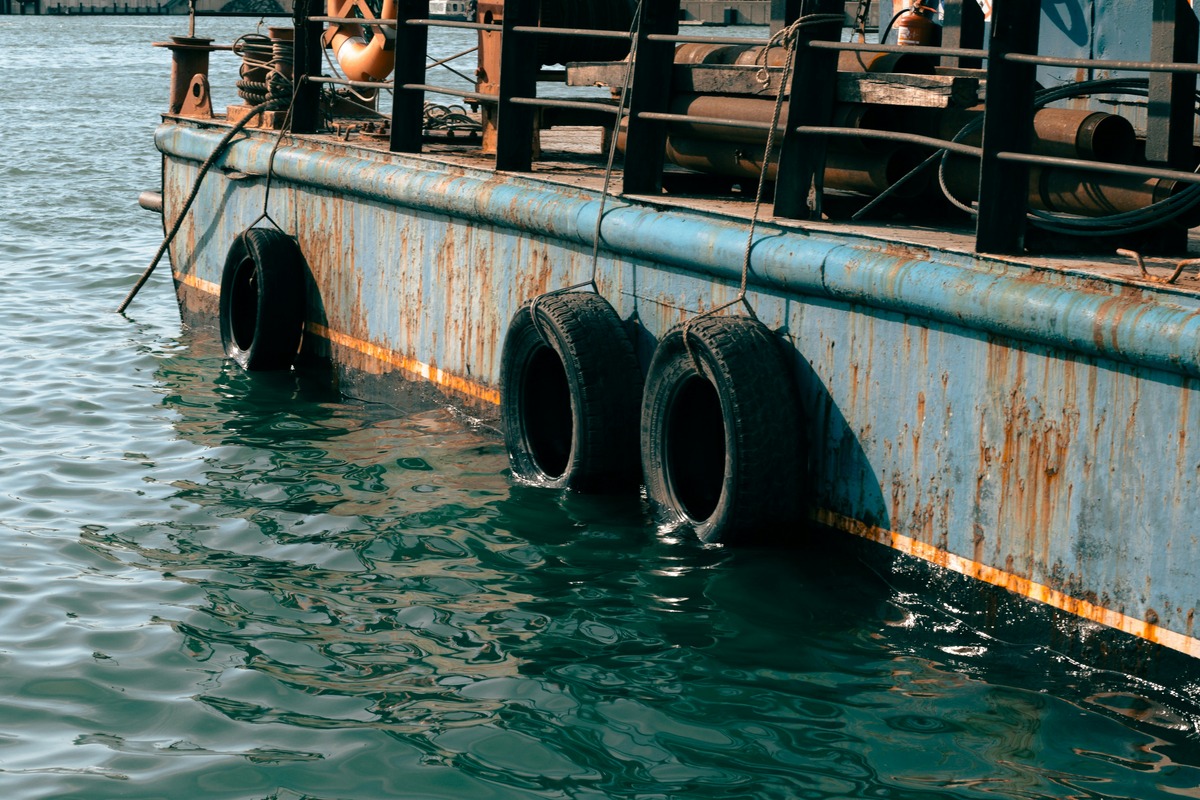Preventing corrosion on your boat is essential to maintain the lifespan and performance.
Corrosion can affect different parts of your vessel, especially if it is made of metal, such as aluminum or steel, or if it has metal parts such as screws and fittings.
Hier is een gids over hoe je effectief corrosie op je boot kunt voorkomen:
What causes corrosion?
Before you take preventive measures, it is important to understand how corrosion arises. The most important types of corrosion that boats can affect are:
Galvanic corrosion
This occurs when two different metals come into contact in the presence of an electrolyte, such as saltwater. The more active metal (anode) will corrode faster than the less active metal (cathode).
Electrolytic corrosion
Is caused by stray flows, often from shore current or defective wiring, which leads to accelerated corrosion.
Well corrosion
Localized corrosion that causes small pits or holes in the metal, often through exposure to saltwater or chlorides.
Use suitable materials
Choosing the right materials can help to minimize the risk of corrosion:
Aluminum and stainless steel
Use high -quality aluminum or stainless steel, because these materials are more resistant to corrosion than ordinary steel.
Non-metal parts
Consider the use of non-metal parts (such as fiber optic or plastic) for areas that are sensitive to corrosion, such as fittings and railings.
Apply protective coatings
Applying protective coatings helps reduce corrosion. Use maritime paint and primers to protect metal surfaces and apply antifouling paint to underwater parts, such as the hull, to prevent growth and corrosion.
Also think of transparent coatings that can protect visible metal without changing the appearance.
Install anodes
The use of sacrifices is a usual and effective method to prevent galvanic corrosion:
Zinc, aluminum or magnesium anods
Attach these anods to your boat. They will corrode instead of the metal parts of the boat. Check and replace them regularly when they are considerably worn out.
Placement
Install anoden in places where metal parts are under water, such as on the hull, the tail piece or the engine.
Regular cleaning and maintenance
Regular Cleaning and maintenance are essential to prevent corrosion. After each use, rinse the boat, especially in saltwater, with fresh water to remove salt and dirt.
Regularly clean the bilge and the engine compartment to prevent garbage and corrosion. Also inspect metal parts such as fittings and screws on signs of corrosion and clean them with a soft brush and suitable cleaning agents.
Management of electrical systems
Incorrectly managed electrical systems can contribute to corrosion on boats. To prevent this, it is important to guarantee good grounding and to avoid stray flows that can speed up corrosion.
Regular inspections of wiring and connections, and immediately replace all corroded parts. Moreover, it is important to keep the batteries in good condition, because poorly maintained batteries can leak and cause more corrosion.
Keep the hull well sealed
To prevent water entry and subsequent corrosion, it is essential to seal the hull of your boat properly. Regularly inspect and maintain the seals around windows, shutters and other openings to ensure that they remain watertight.
Also check the hull for cracks or scratches and repair it immediately to prevent water from entering and causing corrosion.
Store your boat correctly
Correct storage plays an important role in preventing corrosion:
Dry storage
If possible, store your boat in a dry place to prevent moisture retaining. Inner storage or a covered space is ideal.
Cover
Use a breathable cover to protect your boat against the elements, while moisture can escape to prevent mold and corrosion.
Keep an eye on the environmental conditions
Environmental factors, such as humidity and temperature, can significantly influence the corrosion speed. Higher humidity can accelerate corrosion, so it is advisable to store your boat in a climate -regulated environment when possible.
Conclusion
Regular checks and a proactive approach will help to keep your vessel in excellent condition for years.


